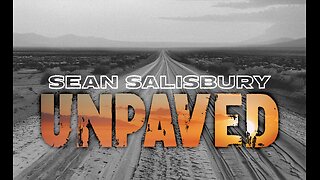Premium Only Content

Introduction of No dig farming in hindi
No-dig farming, also known as no-till or no-dig gardening, is a sustainable and natural approach to growing crops without disturbing the soil through deep digging or tilling. It involves building and maintaining healthy soil structure and fertility without the need for extensive manual labor.
Here's a basic explanation of no-dig farming for beginners:
1. Start with a clean area: Clear the designated growing area of any existing vegetation, weeds, or debris.
2. Create the garden beds: Rather than digging or tilling the soil, create raised beds by layering organic materials directly on top of the ground. These materials can include compost, well-rotted manure, straw, cardboard, or newspaper.
3. Add organic matter: Regularly add organic matter like compost, leaf mold, grass clippings, or kitchen scraps on top of the existing layers. This helps to improve soil fertility, structure, and water-holding capacity.
4. Planting and sowing: Make shallow holes or furrows in the top layers of compost and sow seeds or plant seedlings directly into the prepared beds.
5. Mulch the beds: Cover the soil surface with organic mulch, such as straw, wood chips, or shredded leaves. This helps to suppress weeds, regulate soil temperature, retain moisture, and add organic matter as it breaks down.
6. Minimal disturbance: Avoid disturbing the soil beneath the surface as much as possible. Simply loosen the mulch layer to sow or plant new crops when needed.
7. Crop rotation: Practice rotating your crops each year to prevent the buildup of pests and diseases, and to maintain soil health.
Benefits of no-dig farming for beginners include:
- Minimized weed growth due to the mulch layer
- Retention of more moisture in the soil
- Improved soil structure and fertility over time
- Reduced erosion and soil compaction
- Less labor-intensive compared to traditional digging or tilling methods
- Suitable for small spaces, including pots and containers
Remember, no-dig farming is a continuous learning process, and it may take time for the soil to develop and thrive. Experimenting with different organic matter and observing the results will help you refine your no-dig gardening techniques.
-
 1:45:39
1:45:39
Kim Iversen
13 hours agoTrump Attacks Thomas Massie—But MAGA Isn’t Having It! Is Trump Picking the Wrong Fight?
88.5K163 -
 56:31
56:31
Glenn Greenwald
12 hours agoUNLOCKED EPISODE: On Europe’s Emergency Defense Summit, the Future of Independent Media, Speech Crackdowns and More
133K59 -
 43:48
43:48
BonginoReport
14 hours agoMainstream Media Plots The Next Plandemic! (Ep.02) - 03/11/2025
178K319 -
 1:13:13
1:13:13
Michael Franzese
14 hours agoMegyn Kelly’s UNFILTERED Take on The Ukraine War, Trump & Modern Masculinity
130K57 -
 1:43:21
1:43:21
Redacted News
15 hours agoBREAKING! UKRAINE AGREES TO CEASEFIRE WITH RUSSIA... BUT THERE'S A BIG CATCH | Redacted News
223K361 -
 58:17
58:17
Candace Show Podcast
15 hours agoShould We Feel Bad For Blake Lively? | Candace Ep 157
184K386 -
 3:06:52
3:06:52
The Nerd Realm
16 hours ago $14.43 earnedHollow Knight Voidheart Edition #19 | Nerd Realm Playthrough
109K6 -
 1:17:27
1:17:27
Awaken With JP
18 hours agoThe Current Thing: Tesla Protesting - LIES Ep 82
176K83 -
 1:07:08
1:07:08
Sean Unpaved
16 hours agoNFL Free Agency Rolls On! MLB Spring Training Heats Up along with 3x World Series Champ Dave Stewart
106K4 -
 2:10:15
2:10:15
Right Side Broadcasting Network
21 hours agoLIVE REPLAY: White House Press Secretary Karoline Leavitt Holds Press Briefing - 3/11/25
189K46